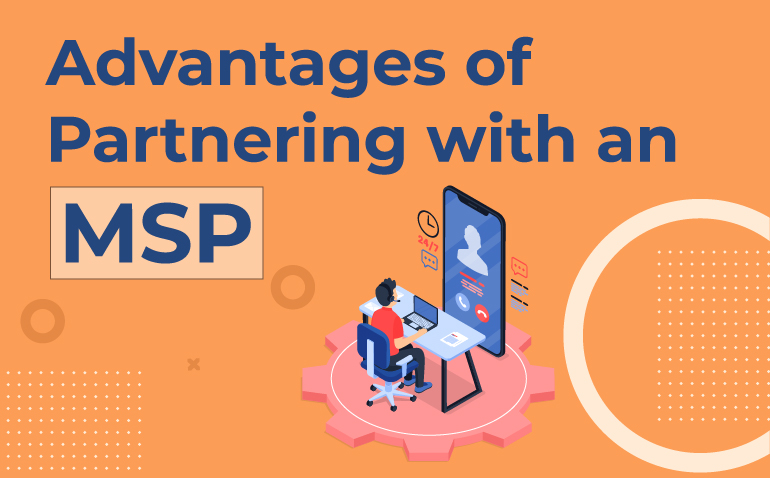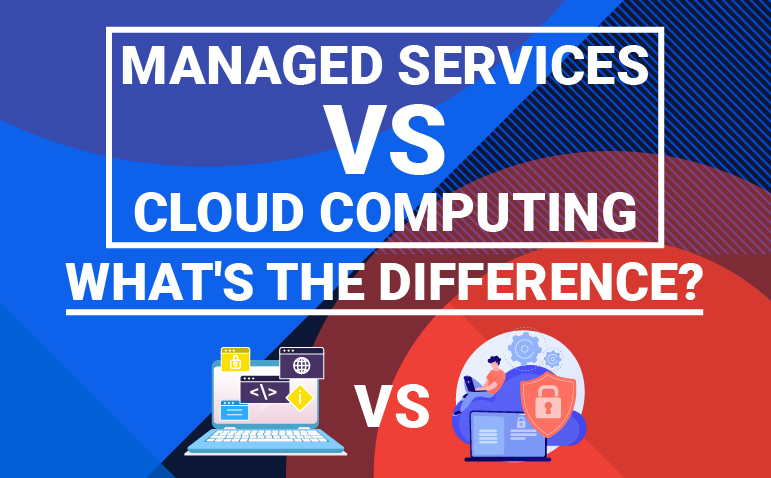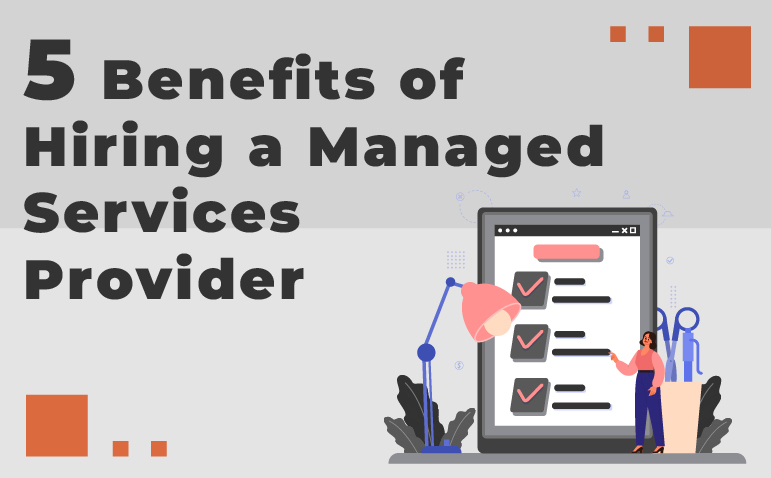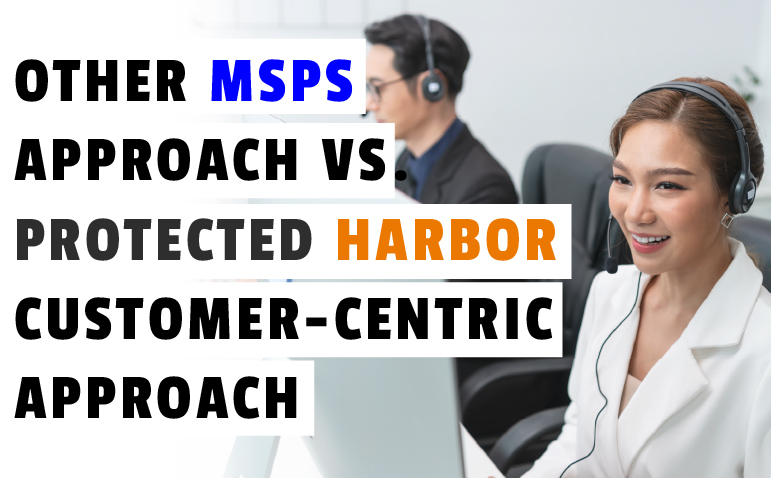With managed IT services, companies can delegate their IT operations to a specialized group that specializes in doing these tasks. Managed Service Providers(MSPs) like Protected Harbor are in charge of all or some of a company’s IT systems, depending on what is specified in a service level agreement (SLA). Generally, the client purchases IT equipment. Depending on the SLA, Managed Service Providers may offer 24/7 monitoring, problem-solving, reporting, and other services.
Managed service providers bill a fixed rate for providing their services for a predetermined length of time, as stated in the SLA. The SLA lays forth precisely what services will be provided, and to what extent, and includes metrics to gauge how well these services are performing.
Through the introduction of Infrastructure as a Service (IaaS), Platform as a Service (PaaS), and Software as a Service (SaaS) technologies, cloud computing has enabled managed IT services to grow beyond the regions and boundaries that would confine the average break/fix IT. Compared to in-house IT operations or break/fix providers, managed IT services may scale at a significantly faster and larger rate thanks to their features.
Key Terms & Definitions
Agent— A small program used by MSPs to remotely gather information about the status of machines and devices. Once installed, it allows MSPs to manage systems, update programs, and resolve issues.
Backup and Disaster Recovery (BDR)— A combination of data backup and disaster recovery solutions that works cohesively to ensure an organization’s critical business functions will continue to operate despite serious incidents or disasters that might otherwise have interrupted them or will be recovered to an operational state within a reasonably short period.
Break/Fix— An older style for delivering IT services and repairs to organizations in a fee-for-service framework. Essentially, a client contacts a break/fix technician to request upgrades, maintenance, or to resolve issues, and the technician bills the customer upon completion of the work.
Fully Managed IT Services— Managed IT services that are coupled with a Network Operations Center to proactively monitor systems, resolve issues and perform work with a level of expertise and efficiency unparalleled to other solutions.
Help Desk— A managed IT service offering that provides information and technical support to end-users. Some MSPs white label their Help Desk services for the client SMB.
Information Technology (IT)— An enterprise solution for storing, transmitting, creating, and using data through computing devices, networks and telecommunications.
Infrastructure as a Service (IaaS)— An MSP offering to SMBs; virtualized hardware over a cloud computing environment such as server space, network connections, IP addresses, load balancers, and other computer infrastructure with which clients can build their own platforms.
Internet of Things— The emergent network of tangible objects and products that contain software, sensors, and connectivity to the Internet and/or private networks and can exchange information based on standards set forth by the International Telecommunication Union’s Global Standards Initiative.
In-House— The process where an organization hires its own IT service providers and pays their salary, benefits, further training, and the infrastructure they oversee. This is typically an extremely costly endeavor, and often businesses that try to procure in-house IT lack the capabilities to fully service their system and an inability to grow.
IT Channel— An industry-exclusive marketplace where VARs, MSPs, and OEMs provide platforms, products and services to end-users by partnering with hardware and software vendors.
Labor Arbitrage— the phenomenon of decreasing end costs by utilizing the abundant labor forces, education, and training of untapped global workforces.
Managed IT Services— Managed IT Services (MITS) refer to outsourcing IT support and management functions to a third-party service provider. MITS providers offer a range of IT services, including hardware and software support, network management, cybersecurity, data backup and recovery, cloud computing, and help desk support, allowing the client to focus on their core business operations.
Managed Services Provider (MSP)— An IT professional (or IT organization) that offers managed IT services.
Mobile Device Management (MDM)— A security platform used to monitor, manage, and secure employees’ mobile devices (laptops, smartphones, tablets, etc.) that are deployed across multiple mobile service providers and across multiple mobile operating systems being used in an organization.
Platform as a Service (PaaS)— A virtualized platform within a cloud environment that allows end-users to develop and manage Internet applications that would otherwise require a complex infrastructure to launch apps.
Remote Monitoring and Management (RMM)— a platform utilizing a collection of services and tools that can monitor, manage, and deploy solutions to servers and endpoint devices utilizing agent software installed on endpoint systems.
A service-level agreement (SLA)— Essentially, a contract between a vendor and a client that specifies what the vendor will furnish the timeframe in which it will be furnished and the criteria for measuring vendor success.
Small and Medium-Sized Business (SMB)— On average, business or organization that has 100 or fewer employees is considered small; 100-999 employees are medium-sized. IT channel partners often seek SMB organizations as clients.
Software as a Service (SaaS)— Sometimes referred to as “software on demand,” SaaS is a licensing and distribution model that utilizes a subscription basis for access to software that is centrally hosted by its provider and accessed by end-users via a client.
Value-Added Reseller (VAR)— An organization that adds services or features to a product, then resells it as a new product or solution.
History of Managed IT Services
In the early days of enterprise computing, computer systems were handled by experts only when they broke down and needed to be fixed by a technician. Information technology services and business models were based on a break/fix premise. Given the abundance of small IT firms that provided this kind of small-scale client services at the time, it is also possible that this expert was the one who designed and/or installed the computer system.
But as time went on, large-scale computer manufacturing expanded, forcing small IT dealers to concentrate more on break/fix and less on manufacturing. This method was expensive, labor-intensive, reactive, and time-consuming. It prevented the technician room from expanding its clientele or adding new ones without requiring significant labor and infrastructure.
The gap between break/fix technicians and the number of computers they could reasonably serve under the break/fix model got wider and wider as the number of computing devices expanded annually. In response to this demand, managed IT services—a radical departure from the break/fix paradigm—rose in the early years of the new millennium.
With the aim of averting issues before they arise, managed IT services introduced a proactive approach to IT by trying to perform normal maintenance, upgrades, system monitoring, and issue resolution. Automation improved Internet capabilities, and cloud computing made remote monitoring and problem-solving possible, leading to resource consolidation and more effective procedures.
Efficiency, pooled resources, and client satisfaction combined with set fees, the capacity to provide more services, and the ability to take on a larger clientele led to managed IT services becoming the industry-standard approach to managing computer systems large and small for SMBs.
The Managed IT Services Model
MSP managed platforms make use of a wide spectrum of IT know-how to effectively address problems. In contrast to break/fix providers, managed service providers (MSPs) have access to the newest procedures and tools to proactively monitor endpoints, maintain system updates, and stop problems before they start. With managed IT services accessible around-the-clock, seven days a week, end users may take the evenings and weekends off, with MSPs handling the bulk of the work on tasks and procedures completed after business hours.
Based on the defined service level agreement, MSP services are normally provided at a fixed recurring charge at tiered levels, with higher levels giving more automation and management. End users only pay for the services they really use, and they have the ability to change their tier in accordance with demand and business requirements.
The end-user pays for services rendered remotely, including backup and disaster recovery, help desk solutions, remote monitoring and administration, and more, just like with other essential business services like utilities. Thus, managed IT services cease to be extra costs incurred during extraordinary issue resolutions with break/fix models and instead become necessary operating expenses to sustain core performance. MSPs give their customers the ability to operate their businesses more smoothly and profitably than they otherwise could. They also provide SaaS-based solutions and a pricing structure that are not possible with in-house solutions.
However, managed IT services do not always mean that enterprise IT professionals are no longer needed; instead, an IT expert can serve as an endpoint liaison for the user, managing the connection, offering feedback, and examining the reports that the MSP. Because the majority of routine work is being completed by the MSP, the IT professional is capable of greater efficiency and has the flexibility to tackle larger, more complex projects they would otherwise not have the time or capacity to take on.
Benefits of Managed IT Services
SMBs can benefit from business continuity and IT support at a substantially lower cost by outsourcing managed IT services rather than building an equivalent team internally. MSPs can also provide a plethora of experience that in-house teams would not be able to provide due to their active management of several customer accounts.
Furthermore, by working with an MSP, businesses may project their monthly, quarterly, and annual IT spending and are relieved of the burden of attending to this aspect of operational readiness. This frees SMBs from having to worry about ongoing IT requirements or problems and lets them concentrate on expanding their businesses.
Increased potential for security knowledge and well implemented security rules are two more advantages of managed IT services. MSPs should be able to guide your company inside the bounds of the rules and regulations it must follow, having experience working with standards like PCI compliance on a daily basis. This kind of regulatory compliance, which calls for the knowledge and experience of a managed service provider, is essential for the IT division of many businesses, particularly those in the banking, healthcare, education, and other industries. In this approach, MSPs may reduce risk while guaranteeing that the professionals overseeing your IT operations are always knowledgeable about the most recent data, tools, and procedures that will maintain the effectiveness and efficiency of your infrastructure.
In short, Managed IT Services can provide organizations with a comprehensive and cost-effective IT support solution, helping to ensure the reliability, security, and availability of critical IT systems.
If you’re looking to get the most out of your manage service providers in the Hudson Valley New York area, then Protected Harbor is the clear choice.
Source : https://www.continuum.net/resources/mspedia/managed-it-services-overview
















